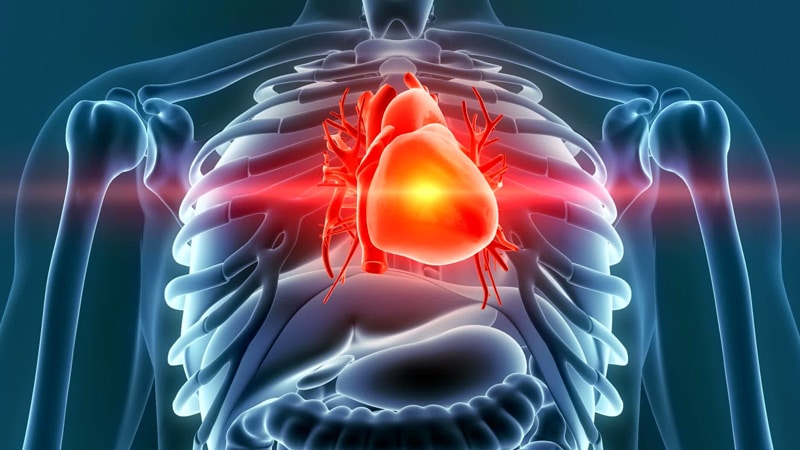With hormone therapy for the treatment of hormone-dependent breasts Prostate cancer May increase the risk of Myocardial infarction (MI) and stroke, And patients need to be carefully monitored to enable early detection and treatment of cardiovascular disease (CVD), the American Heart Association (AHA) said in a new scientific statement.
“This statement provides data on the risks of each type of hormone therapy, which clinicians can use as a guide to manage cardiovascular risk during cancer treatment,” he said. Dr. Tochi Okwuosa, chair of the writing group, said in a news release.
“A team-based approach to patient care that adequately includes oncology teams, cardiologists, primary care clinicians, nutritionists, endocologists, and other healthcare professionals manages and manages an increased risk of heart disease and stroke. It is necessary to work with each patient to alleviate it, which is related to hormone therapy in the treatment of breast and prostate cancer. “..
The scientific statement is Published online April 26 Circulation: Genome and Precision Medicine..
Prostate and breast cancerIs the most common non-skin cancer in the United States and around the world. As hormonal therapy significantly improved survival in these patients, CVD emerged as a major cause of illness and death.
The increased CVD burden may be explained by an increase in the average age of cancer survivors, which increases the incidence of age-related CV risk factors. Coronary artery disease..
The writing group reviewed existing evidence from observational studies and randomized controlled trials of the cardiovascular effects of anticancer hormone therapy.
Among the main findings:
-
In patients with breast cancer Tamoxifen It has been shown to increase the risk of venous thromboembolism, but has been shown to provide some protection against CVD risk burden and neutral effects on CVD events. Conversely, aromatase inhibitors have been shown to increase the risk of CVD risk factors and events such as MI and stroke.
-
Gonadotropin-releasing hormone (GnRH) antagonists have been shown to have a lower risk of CV events than GnRH agonists, but androgen deprivation therapy for prostate cancer appears to increase the risk of CV events. Oral antiandrogens also appear to be associated with an increased risk of CVD, especially when used for complete androgen deprivation in combination with GnRH / antiandrogen therapy.
-
The duration of hormone therapy has a significant impact on CVD risk. The longer a patient receives hormone therapy, the higher the risk. More research is needed to more clearly define the risks associated with duration of treatment.
-
The data are mixed with existing CV risk factors and the effects of CVD on hormone therapy-related CV events. The presence of baseline CV risk factors and CVD may increase CV events associated with aromatase inhibitors, but it is not clear whether tamoxifen is increased.
-
Studies suggest that patients with prostate cancer and baseline CVD and CV risk factors have an increased incidence of CV events when treated with androgen deprivation therapy.
-
Although long-term use of some hormone therapies exacerbates risk factors for CV metabolic syndromeThe effect of treatment duration on CV events is less clear..
The writing group states that there are currently no clear guidelines for monitoring and managing CVD risk associated with hormone therapy.
They note that clinicians pay attention to exacerbation of CV problems in patients with existing heart disease or risk factors, and recognize that even patients without existing CV problems are at increased risk due to exposure to hormone therapy. Encourage that.
“For patients with more than one Cardiovascular risk factorsBefore starting hormone therapy, referral to a cardiologist may be appropriate. For patients who are already on hormone therapy, discussions with the oncology team can help determine if a referral for heart disease is recommended, “Okwuosa said in a news release.
This scientific statement was produced by a volunteer writing group on behalf of the Clinical Cardiology Council and the AHA Cardiac Oncology Subcommittee of the Genome and Precision Medicine Council. Council on arteriosclerosis, thrombosis and vascular biology. Council on cardiovascular radiology and intervention.
There was no commercial funding for this study. Okwuosa does not disclose any relevant financial relationships.
Circ Genom Precis Med.. Published online on April 26, 2021. Full text




